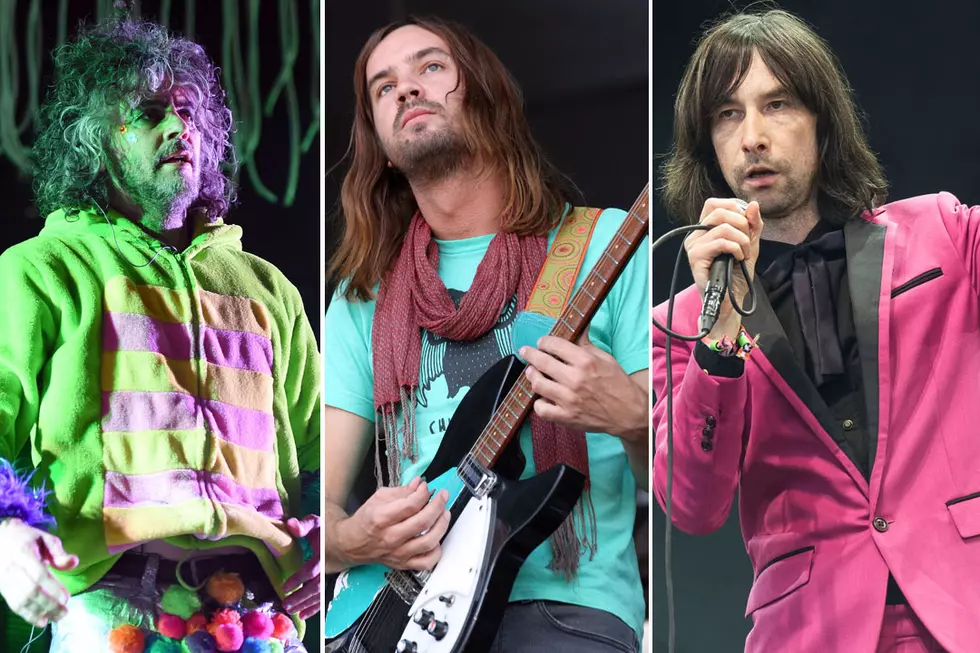
Primal Scream’s Bobby Gillespie Discusses the Pain Behind New Album ‘More Light,’ the Joys of Acid House and Punk + More
When Primal Scream frontman Bobby Gillespie listened back to the songs he had written for ‘More Light,’ the band’s first album in five years, he was startled to find that all of them had pain as a central motif. Startled, but not necessarily surprised.
“I was listening to Nirvana the other day, and it just sounds so good to me,” Gillespie tells Diffuser.fm. “I really love Kurt Cobain. He’s wounded boy. He’s got a real harrowing rage in his voice, like a wounded animal, and his pain makes you lose your pain a little bit.”
That concept fuels the songs on ‘More Light,’ which follows Primal Scream’s 2008 album ‘Beautiful Future,’ and the band’s 20th anniversary performances of their landmark 1991 album ‘Screamadelica.’
In a wide-ranging conversation, Gillespie recounts the cultural landscape that resulted in ‘More Light,’ recalls discovering acid house in the ’80s and explains the similarities between young bands and gangs.
What were you thinking about about while writing these new songs?
I was thinking about the effects of f---ing capitalism on people. I live in London, and I’m always in the streets, on public transport, reading the papers, watching what the government are up to. You know, I read a lot of political books, a lot of novels, and I watching things culturally. I think I’m pretty informed, and I’m conscious, so I’m writing about stuff that affects me. I may even be writing about my own life. I just don’t know. Mostly I’m writing about stuff that moves me, whether it’s political violence, economic violence, the violence of addiction, familial violence, psychic violence. There’s a lot of pain in this record. I guess I’m writing about pain: mine and other people’s pain. I’ve got empathy for people trapped in bad situations. I see a bit of myself there, and I’m just trying to be as honest an artist as I can be.
What do you think brings on all that pain?
We’re living in really right-wing reactionary times. There seems to be no opposition on the left. And when I say “the left,” I mean humanistic, liberal opposition. I think the right are deadly. It’s like science-fiction, really. People have been bought by consumerism and technology. They think they’re free, but they’re not free. They think having the choice of what f---ing computer to buy is freedom.
Did you realize while you were writing the songs that they were about pain?
No, that came later. I was too immersed in the process of writing, just trying to do the best album I could. It was only when we finished all the songs and I was making a collage kind of thing of all the songs that I realized, "Oh, my God, f---ing hell, there’s a theme to these songs." [Laughs] But it’s all good, because it’s not like depressing kind of pain. I think it’s cathartic getting all that stuff out. It’s good, I think, to get your pain out in art. If you can do that, other people can feel it, and it can soothe their pain as well.
When did you start working on ‘More Light?’
We had a couple of exploratory writing sessions at David Holmes’ studio in Belfast in 2010. We had a couple of ideas there. David was playing us this kind of obscure French avant-garde library of funk records, strange things to create atmosphere, and we’d kind of jam on them. We’d either immediately catch something good, or nothing at all. That’s where we started. We were working on two projects at the same time, we were doing this project to play our ‘Screamadelica’ album live. We started that in 2010 and we had gigs at the end of 2010.
How has the way the band works together changed over the years?
When we were younger, it was more like a gang, before we had families. Me, Andrew Innes and Robert Young, who’s not in the band anymore, we used to stay in Andrew’s flat in London. We’d stay there and write songs, and there were only three of us in the band at that point. Robert and myself lived in Brighton, but we’d come up to London and stay with Andrew out in Isle of Dogs, which is really out in east London, you know? Really a working-class area. Now it’s a huge financial center, because Thatcher made it that in the late ’80s, but it was a bit of wasteland.
How has that gang mentality changed over the years?
In the ’90s, everybody started getting girlfriends and getting their own flats. Things become slightly more atomized. But you’re in your 30s, so you still kind of have that gang mentality. Then in 2000, I guess, everybody started having children, so that kind of atomizes you even more. You don’t really hang out, you don’t go out to clubs, you’re not trying to pick up girls, all those male-bonding things. But the thing that’s really kept us together is that we’ve always had our own studio, so mostly Andrew Innes and myself would go there four or five days a week and work, and see what we came up with. That’s kind of what has kept us going, really. So rather than hanging out with each other in nightclubs and bars, it’s all about the work. That’s why we’ve endured as a band, because it’s about trying to make good art. Whether people think it’s good art or not, we’re f---ing trying.
How much did that wasteland atmosphere in the East End affect the music?
I think what inspired the music more was going to the acid house clubs. That was a bit more glamorous. The East End was just too seedy and run-down. And obviously, living through the ’80s in Britain and Margaret Thatcher’s government, and this all-out f---ing war on the working class, you obviously felt angry, and it felt like there was no future. It felt like the country was at war and a very gray, depressed place. It was very reactionary. And a lot of music in the ’80s, especially chart music, was just dreadful. So when something like acid house happened, it was such an explosion of color: sex, drugs, energy and really incredible modern electronic psychedelic music. To me, acid house and punk were both flashes of color and energy and excitement and vitality and invention and creativity. Both acid house and punk rock inspired me. In the midst of all this depressing f---ing retroactive reactionary political force that was Thatcherism, when acid house came up, it was like this revolutionary f---ing force. It was everything a youth culture should be, and it was underground. The music papers missed it, the national press missed it, and it was a cool thing to be a part of. It was an incredible time.
Watch Primal Scream's Video for 'It's Alright, It's OK'
More From Diffuser.fm









